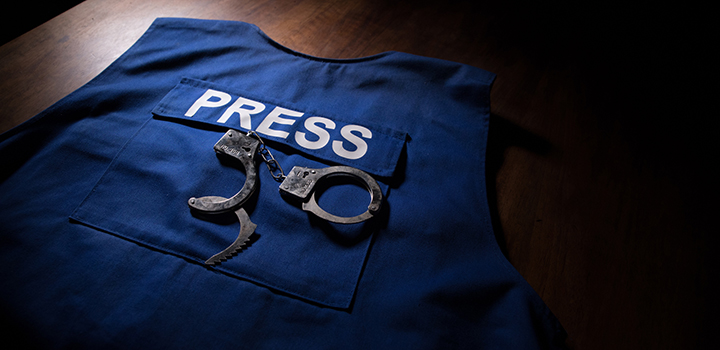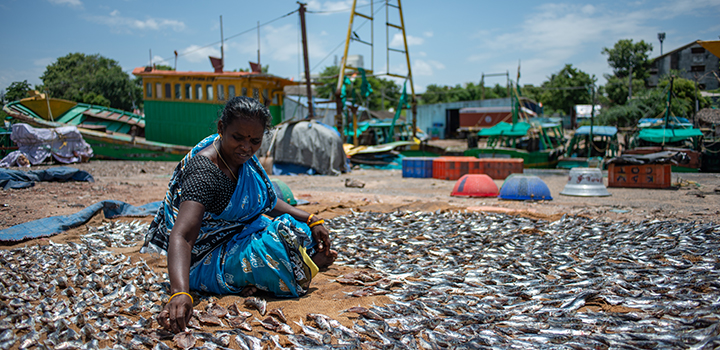UEA academic sails from Africa to Australia for UNICEF
By: Communications

Prof Maren Duvendack, an intrepid academic from the School of Global Development, has returned to England after sailing more than 10,000 km from South Africa to Australia to raise money for UNICEF.
The Clipper Round the World race is held every two years, with 11 identical yachts owned by Clipper Adventures racing to circumnavigate the globe over a 10-month period. The race differs from many other round-the-world races in that it teams professional crew with amateurs - according to Clipper Ventures, around 40% of participants are novices.
Maren, Professor of Evaluation in Economics, completed one of eight legs of the race aboard Yacht Club Punta Del Este, taking her from South Africa to Australia, a journey of more than 10,000 km.
Explaining her reasons for embarking on this adventure, Maren said:
“After years of thinking about this adventure, the decision to actually embark on this race was triggered by a terrible car accident a close friend of mine had which left her severely paralysed. This was a wakeup call reminding me that life is short, live it before it is too late, and if you can combine this with fund raising, even better.”
Maren’s leg of the journey crossed an area known as the ‘roaring forties’ due to the extremely strong westerly winds that occur between 40° and 50° south. During the journey, the yacht traversed parts of both the Indian and Southern Oceans – bodies of water known for unpredictable and extreme weather conditions.
Maren said:
“The conditions were rough and the weather was very dynamic; we were in one particular storm where we had up to 65 knots of wind and 12-15 metre waves. It was cold, wet and uncomfortable, akin to living in a washing machine for a month but it was exciting and challenging and I absolutely loved it.”
Maren departed from Cape Town, South Africa on 18 November, arriving in Fremantle, Australia on 14 December. Across the thousands of kilometres, she experienced plenty of ups and downs, saying:
“The high points were the boat flying along in 30-35 knots of wind, surfing down big waves with a boat speed of up to 24 knots, truly exhilarating. We also saw some wildlife - dolphins, albatross, whales - which was absolutely fantastic. I will miss the camaraderie of the crew, I formed some great friendships.
“The low points were the various repairs we had to embark on, for example, we had some issues with the mast track and a fire in the navigation station. These things slowed us down.”
UNICEF has been a charity partner of the race since the 2015-16 event, a partnership that has helped to raise more than £1.2m. This year, the race has set a fundraising target of £365,000. Maren’s own fundraising page can be found on JustGiving, alongside those of her crew mates, where they have a combined target of £70,000.
UNICEF’s work in providing humanitarian and developmental aid to children worldwide is a natural fit for Maren’s own beliefs and experiences. She said:
“UNICEF was chosen as a charity by the race organisers, and we all have team fund raising targets and our own individual fundraising pages on JustGiving. As I work in the field of Global Development, what UNICEF stands for is close to my heart. I worked with UNICEF in India a few years ago and it is a pleasure to now be able to fundraise for them.”
After 27 days of sailing, the sight of Fremantle Harbour was a welcome one for Maren, who said:
“It was wonderful, the Southern Ocean is remote and it can be a very hostile place, so seeing and smelling land brought tears to my eyes. A cold beer, an Australian BBQ and a long shower – in that order – were the things to look forward to upon disembarking the boat!”
Completing the arduous journey has not affected Maren’s desire to seek out other challenges in the future, reflecting on her experience she said:
“I am an adventurer by nature, this trip was truly amazing, unlike anything I have ever done before. It taught me a lot, not just about sailing, race tactics and boat management but also about human resilience in the face of adversity and survival in hostile environments. I am sure I will find another adventure to embark on after this one!”
Related Articles

Baltic countries lead the way in supporting media freedom internationally, according to new index
The Baltic states have emerged as global leaders in promoting media freedom internationally, according to a new Index on International Media Freedom Support (IMFS).
Read more
UEA researcher named BBC New Generation Thinker for groundbreaking work on climate and child marriage
The University of East Anglia’s Dr Reetika Revathy Subramanian has been named one of the BBC’s 2025 New Generation Thinkers.
Read more
Women in global fisheries industry fall through the safety net
Millions of women in the fisheries industry are being left behind as technologies develop to counter the effects of climate change and economic pressures. Research led by the University of East Anglia (UEA) looks at post-harvest fisheries and aquaculture.
Read more